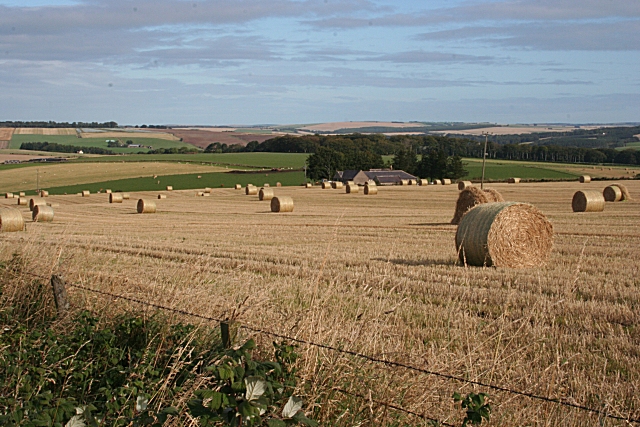05 July 2018
Rural Life
Need for housing, jobs and connectivity.
By Lynda Goetz
 This week, for those of you who are not aware of the fact (probably most of you), is Rural Housing Week (it is also NHS Health Information Week, Sarcoma Awareness Week, School Diversity Week, National Dim Sum Week as well as National Picnic Month (!) and the month of the Samaritans annual awareness campaign, Talk to Us –which, in case you are interested, can all be found on the National Awareness Days website).
This week, for those of you who are not aware of the fact (probably most of you), is Rural Housing Week (it is also NHS Health Information Week, Sarcoma Awareness Week, School Diversity Week, National Dim Sum Week as well as National Picnic Month (!) and the month of the Samaritans annual awareness campaign, Talk to Us –which, in case you are interested, can all be found on the National Awareness Days website).
What, you might quite reasonably ask, is Rural Housing Week? Well, according to the National Housing Federation website, ‘The aim of this annual celebration is to highlight rural housing issues and showcase housing associations’ innovative solutions for tackling them… and to reinforce the message that housing is vital for the survival of rural communities and services.’ One tends to associate housing associations with inner cities rather than rural environments, but the lack of affordable housing in rural communities has for some time now been a problem. This time last year, the Campaign for the Protection of Rural England (CPRE) produced a report (based on Government data) showing a growing crisis in the availability of affordable housing in rural areas. Since the main way affordable homes are currently provided is through conditions on developers being granted planning permission, it seems that it is not difficult for unscrupulous developers to use viability studies to renege on promises made regarding affordable housing and infrastructure. Add this to the facts that in many areas second home owners are pushing up the price of housing generally and that a massive increase in the UK population has occurred over the last 30 or so years (current population is 66 million, up from 57 million) and it is easy to see why we have a problem.
For those who were born into or wish to live a rural life in the 21st century, lack of available affordable housing is, however, only one of the problems. Clearly, there are not as many job opportunities in rural areas as there are in cities. Whilst many who live in the countryside these days often commute to their nearest cities for work, it might have been thought perhaps that there would be opportunities to work from home. Unfortunately, as those who live in the countryside are only too well aware, this possibility is, in so many places, scuppered by the poor broadband speeds outside urban areas. This country in fact has one of the worst records for broadband coverage in Europe. The 2017 EU Broadband Progress Report puts the UK (along with Ireland, Belgium and Greece) behind other European countries when it comes to ultrafast ‘full fibre’ broadband. In spite of all the ‘ifs’, ‘buts’ and ‘maybes’, about how it might be in a few years’ time, it is obviously intensely frustrating if currently as a rural broadband user you find it difficult (and at times impossible) to do such things as book flights, do internet banking or stream a film. These things are considered to be a normal part of 21st century life. When all the banks in your nearby market town have closed so that the nearest is now 12 miles away and your village post office has closed, the availability of online banking becomes rather more essential, especially if you are trying to run any sort of business. If this, amongst other things, does not work it makes running a business from home almost impossible.
 Add to this frustration the fact that in many rural areas, mobile reception is really poor (a little known fact, it would seem, to ‘townies’, who seriously seem to think you must have died if you don’t answer your mobile phone!) and you have rural communities facing, as Cllr Mark Hawthorne, chairman of the Local Government Association (LGA) People and Places Board, was quoted as saying, ‘a perfect storm’. Cllr Hawthorne’s remarks were made in connection with an interim report published at the LGA’s annual conference in Birmingham this week, in which they set out the measures needed to address a deepening divide between rural and urban England. The gist of the report is that greater powers should be handed to local areas, leaving the national government to get on with delivering a successful Brexit (oh yes please!) and that in the longer term it is essential that post-Brexit Britain ensures that there is focus on rural as well as metropolitan success.
Add to this frustration the fact that in many rural areas, mobile reception is really poor (a little known fact, it would seem, to ‘townies’, who seriously seem to think you must have died if you don’t answer your mobile phone!) and you have rural communities facing, as Cllr Mark Hawthorne, chairman of the Local Government Association (LGA) People and Places Board, was quoted as saying, ‘a perfect storm’. Cllr Hawthorne’s remarks were made in connection with an interim report published at the LGA’s annual conference in Birmingham this week, in which they set out the measures needed to address a deepening divide between rural and urban England. The gist of the report is that greater powers should be handed to local areas, leaving the national government to get on with delivering a successful Brexit (oh yes please!) and that in the longer term it is essential that post-Brexit Britain ensures that there is focus on rural as well as metropolitan success.
Interestingly, another report, on unlocking digital potential for rural businesses, commissioned by Amazon, with research undertaken jointly by Rural England C.I.C. and Scotland’s Rural College (SRUC), appears quite optimistic in this regard. It concludes that for the most part the UK rural economy is ‘plugged in and aspiring to up its digital game’. That aspiration is however being checked by a number of constraints, not least of which is the connectivity issue (although not primarily the subject of the report). Even putting aside the network connectivity problems, 52% of rural businesses surveyed identified other constraints reducing their ability to go digital. Accessing external digital support was the main issue for smaller businesses, whilst larger businesses identified an inability to recruit staff with appropriate digital skills (there may not be anywhere nearby for them to live, of course). The report concluded with a number of observations and recommendations; observations included the fact that many rural-based businesses placed a high premium on such things as work-life balance, community and environment; recommendations included better access to digital support and smarter digital training to encourage young people and better retraining opportunities for other age groups, as well, of course, on faster and more reliable digital connectivity.
The existence of these two reports shows at least that the issue of the rural/urban divide is being taken seriously. The Telegraph Campaign for Better Broadband, which has been running now for two years, has received broad support, as has the LGA sister campaign Up to Speed which has also had a number of success stories. The Ofcom 2018 Study shows that whilst broadband speeds are increasing year on year, the gap between urban and rural areas persists. If we are to make a success of post-Brexit Britain, we need to make use of all the resources available to us, which must include many areas outside the metropolitan hubs. Houses, jobs and access to the essential elements of 21st century living will all be necessary and the LGA is right in considering that these need to be managed much more at a local level. Westminster does not always understand the needs or priorities of rural communities, as it has shown time and time again. You cannot legislate to ‘plonk’ 5,000 houses down in the countryside and consider the ‘job done’. As a report on Housing in the South West (Oct 2017) concludes, inter alia, ‘Employment opportunities are necessary if the development is to be successful,’ as well as the ‘need for a long lead in time and a strategic approach to planning and delivery’. Let us hope that foresight and planning will avert the ‘perfect storm’ feared by Cllr Hawthorne and lead instead to opportunities for rural communities to contribute to the prosperity of post-Brexit Britain, whilst continuing to enjoy the work-life balance rural life can offer.


